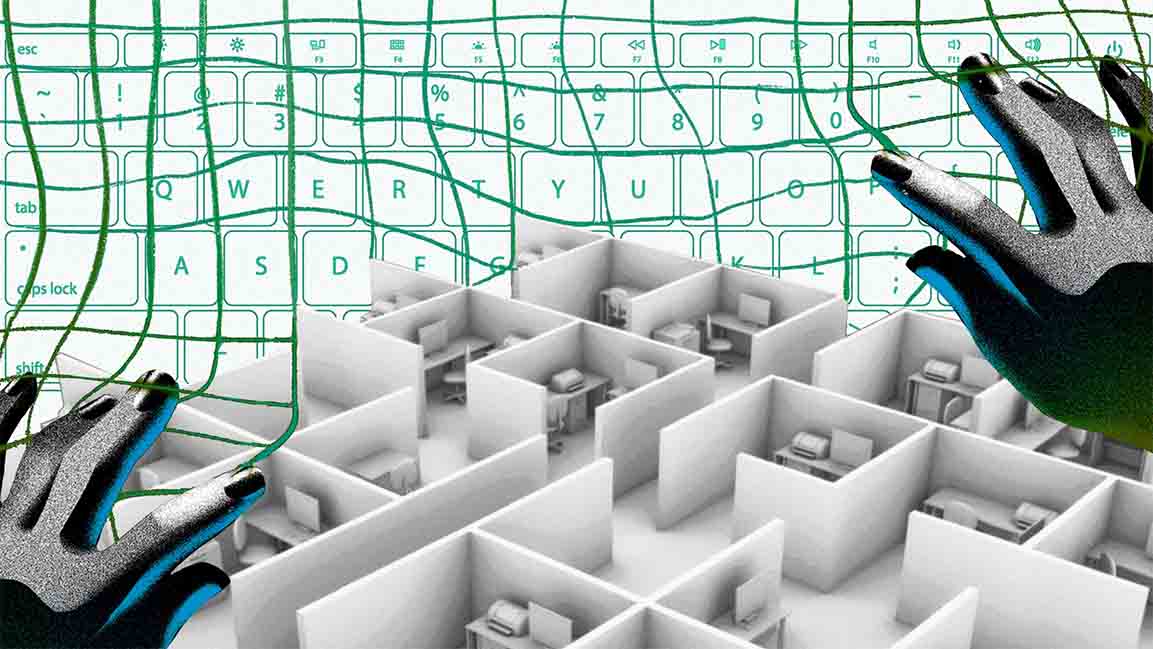- | 9:00 am
Will ChatGPT replace you at work? Not yet, says ChatGPT
Experts talk about how ChatGPT will transform work and create new jobs.

Is ChatGPT coming for our jobs? The AI language model answered it for us: “ChatGPT, like any other technological advancement, has the potential to automate certain tasks and jobs. However, it is important to note that ChatGPT is not a replacement for human intelligence and creativity.”
We probed further and asked if it would change the future of work. It replied: “ChatGPT has the potential to transform the way we work by automating routine tasks, enhancing decision-making, improving communication, enabling personalized learning, and augmenting creativity.”
We spend so much time discussing the possibility that AI will replace us in the workplace that we fail to see how it is already altering it.
Regarding ChatGPT, experts say it is more like having a really smart friend sitting next to you in the back of the room and saving you time and energy by completing several tasks that normally take hours.
However, with so many concerns about it, we talked to experts to clear the air.
YOU STILL NEED AN EXPERT
With ChatGPT, we might have a robot lawyer, robot doctor, robot teacher, and robot accountant. But Dave Crane, a Dubai-based leadership coach, says, “Just because our smartphones have exceptional built-in cameras, doesn’t mean you would trust a friend to take your wedding photos with it. You still pay for a trained professional.”
Though, according to him, ChatGPT might impact many aspects of marketing and advertising involving creating text. Smart workers will use it to enhance productivity.
With an AI, experts say one may outperform by delegating the routine tasks or tasks they don’t understand well to the “new virtual companion.”
Crane says new jobs will be created, like prompt engineers who can integrate the latest technology into any company so they can easily outpace their competitors.
FUTURE OF WORK
By giving both sides accurate and timely information, ChatGPT can help to improve communication between employees and companies. As a result, the workplace may become more productive, efficient, and pleasant.
Further, ChatGPT can help teams work together by giving real-time insights, feedback, and recommendations, and it can help with task coordination, responsibility delegation, and progress monitoring.
The AI chatbot can also automate repetitive operations like scheduling, data entry, and documentation, giving staff members more time to work on challenging and innovative projects.
“Just like the success of any country is governed by the 80% of SMEs who create the actual wealth and success stories, we will see new businesses popping up and making a huge difference to how we work and do things soon,” Crane adds.
A REPLACEMENT FOR HUMAN CREATIVITY OR EXPERIENCE?
Although there is growing concern that ChatGPT will replace human ingenuity and experience, Neuronetastic founder Alexandr Jushkov asserts this is not the case. “ChatGPT can’t replace human creativity or experience. It is just a computer program trained on a lot of text data. It can help us with language-related tasks, but can’t think like humans.”
“It can assist us with tasks such as customer service, translation, and writing, but it cannot replace human qualities like creativity and problem-solving.,” Jushkov adds.
Humans are exceptional in synthesizing knowledge, connecting seemingly unrelated concepts, and developing fresh solutions to challenging issues. “The focus behind AI is not to replace but to elevate human performance. Hence it is not an ‘us vs. them’ but rather a collaborative approach we need to apply here,” says Rohit Manucha, CHRO at SIH – AGH.
While AI language models may prove useful as aids for writing and coding and probably revolutionize internet search, and when responsibly combined with robotics, may even have certain psychological benefits, experts say because of the biases in their training data, AI models like ChatGPT may give an incorrect response. Because of this, it is crucial to make sure that the data used to train AI models is diverse and inclusive of everyone.







































